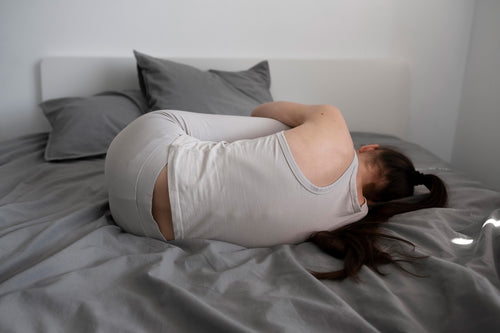Introduction:
Back pain and depression are two common health issues that afflict millions of people worldwide. Often considered separate conditions, recent research has shed light on a fascinating and complex connection between the two. It appears that these conditions are not just co-occurring by chance; there's a significant link that ties them together. In this blog, we'll explore the intricate relationship between back pain and depression, how they influence each other, and what you can do to address both issues effectively.
1. Understanding the Prevalence:
Back pain is a widespread complaint that affects millions of individuals, irrespective of age or occupation. At the same time, depression is a leading mental health disorder that affects a substantial portion of the global population. What's intriguing is that research has revealed a disproportionately high number of people experiencing both conditions simultaneously.
2. The Vicious Cycle:
The connection between back pain and depression is often bidirectional. On one hand, chronic back pain can trigger feelings of hopelessness, frustration, and sadness, leading to the onset or worsening of depression. On the other hand, individuals suffering from depression may experience physical symptoms like muscle tension and fatigue, which can exacerbate or even cause back pain.
3. Shared Neurotransmitters:
Neuroscientists have discovered that both back pain and depression involve some of the same neurotransmitters in the brain. Serotonin, for example, plays a crucial role in regulating mood, and imbalances in serotonin levels have been linked to both depression and the perception of pain. This common neural pathway may explain why these conditions often co-occur.
4. Lifestyle Factors:
The connection between back pain and depression isn't solely neurological. Lifestyle factors can also play a significant role in their development and progression. For instance, a sedentary lifestyle due to back pain can contribute to feelings of isolation and sadness, leading to depression. Conversely, depression can lead to reduced physical activity, which may worsen back pain.
5. Coping Mechanisms:
Living with chronic back pain can be challenging, and individuals may develop coping mechanisms to deal with the pain. Unfortunately, some of these coping strategies, such as overreliance on pain medications or self-isolation, can also contribute to the development of depression. Learning healthy coping mechanisms is essential to managing both conditions effectively.
6. Seeking Comprehensive Treatment:
Given the intricate link between back pain and depression, it's crucial to seek comprehensive treatment approaches that address both aspects. A holistic approach may include physical therapies for back pain, counseling or therapy to address depression, and mindfulness techniques to manage stress and anxiety.
Conclusion:
The connection between back pain and depression is a powerful reminder of the complexity of the human body and mind. Recognizing this link can lead to more effective treatment strategies for individuals experiencing both conditions simultaneously. If you're dealing with back pain and suspect it may be affecting your mental well-being, don't hesitate to seek professional help. With the right support and treatment, you can break free from the cycle and pave the way for a healthier, happier life. Remember, you are not alone, and there is hope for a brighter future ahead.

